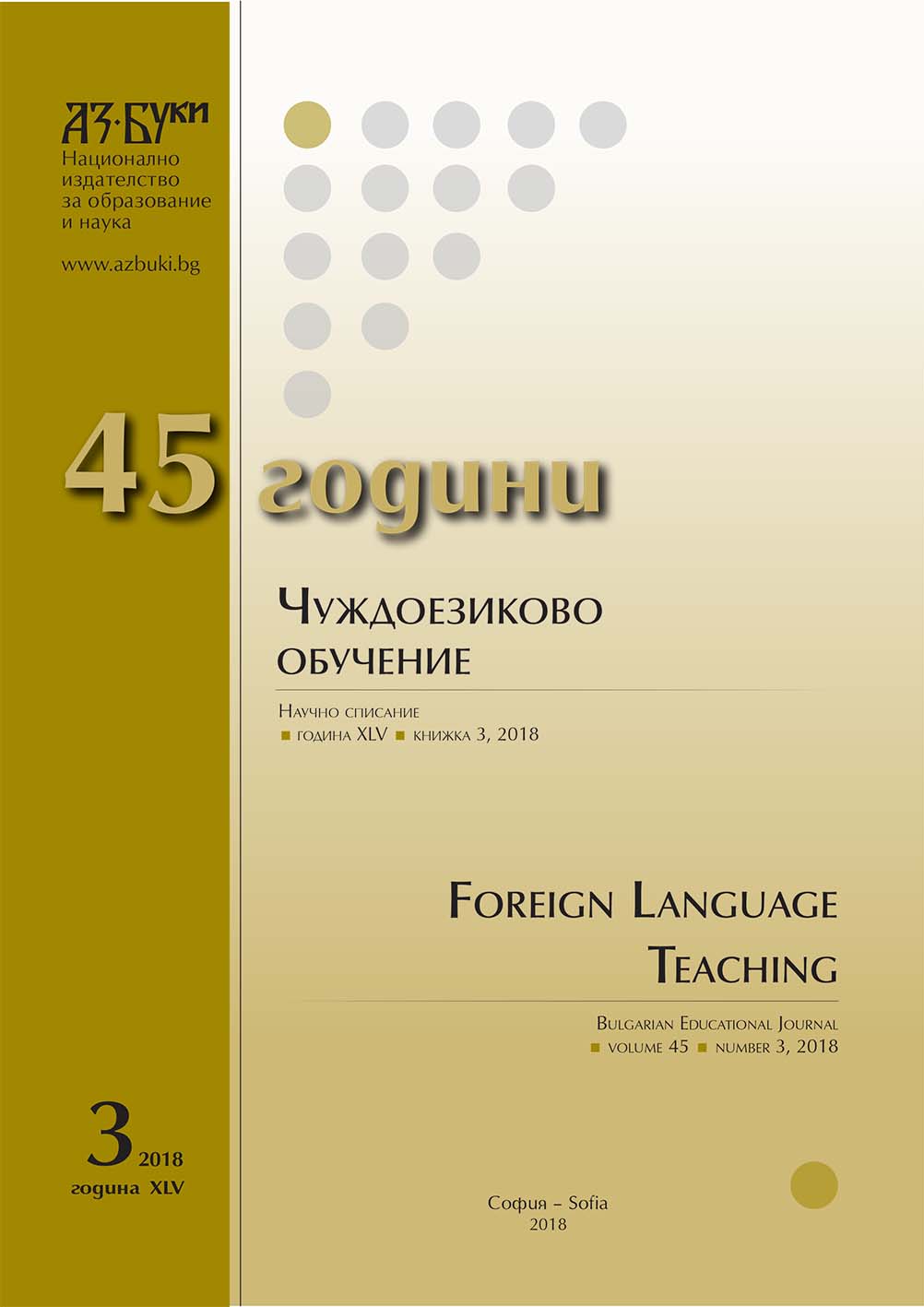
Градината с дървото, което се разклонява: Вавилонски отклонения на Ирена Кръстева
Ирена Кръстева (2017). Вавилонски отклонения. Преводът между лингвистика и антропология. София: Изток-Запад. 280 стр.
More...We kindly inform you that, as long as the subject affiliation of our 300.000+ articles is in progress, you might get unsufficient or no results on your third level or second level search. In this case, please broaden your search criteria.

Ирена Кръстева (2017). Вавилонски отклонения. Преводът между лингвистика и антропология. София: Изток-Запад. 280 стр.
More...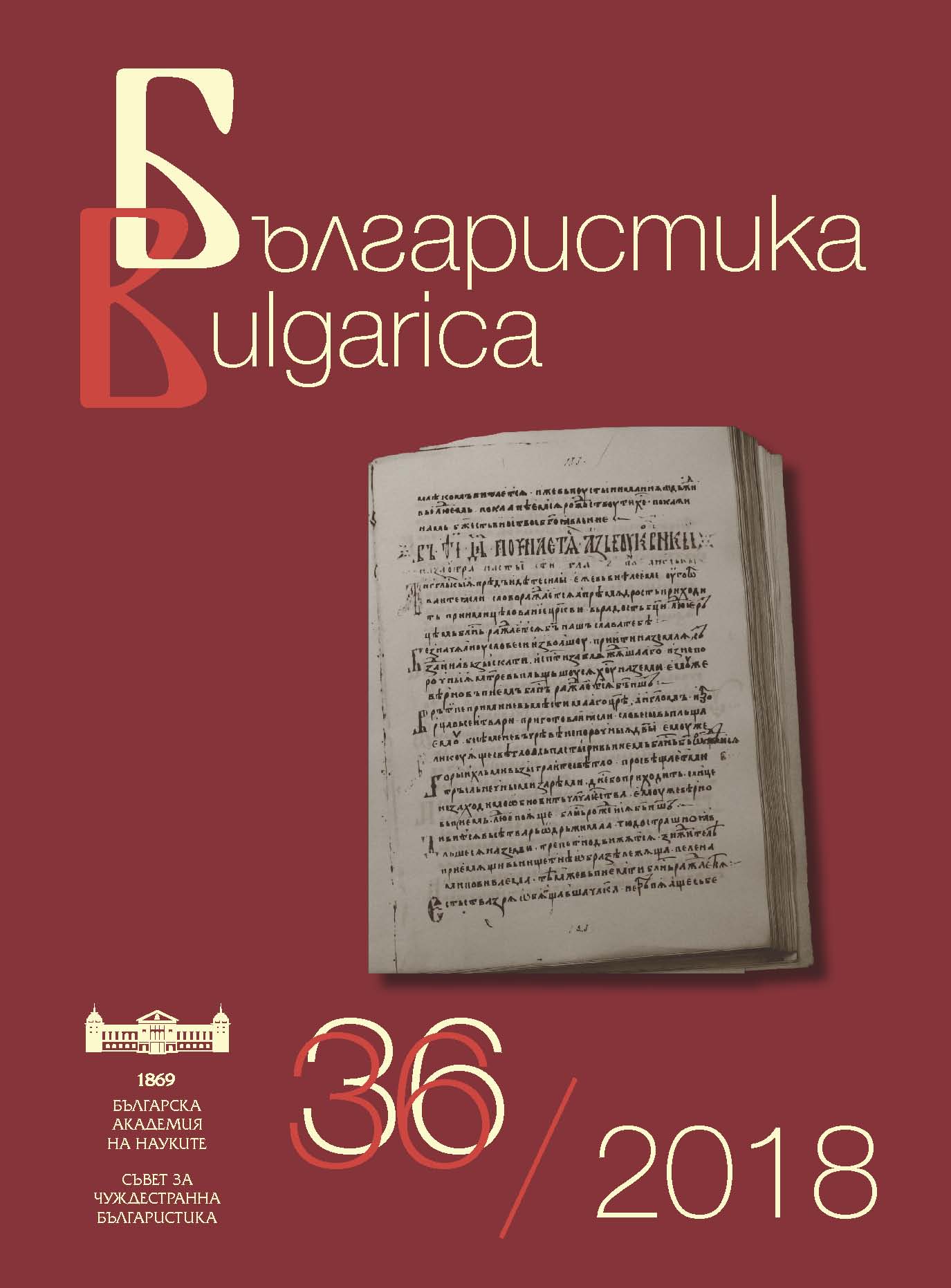
Defended PhD theses in Bulgaria in the field of linguistics, literature, history, folklore, ethnography and art studies
More...
Data about scientific events in the field of the humanities in Bulgaria in 2018.
More...
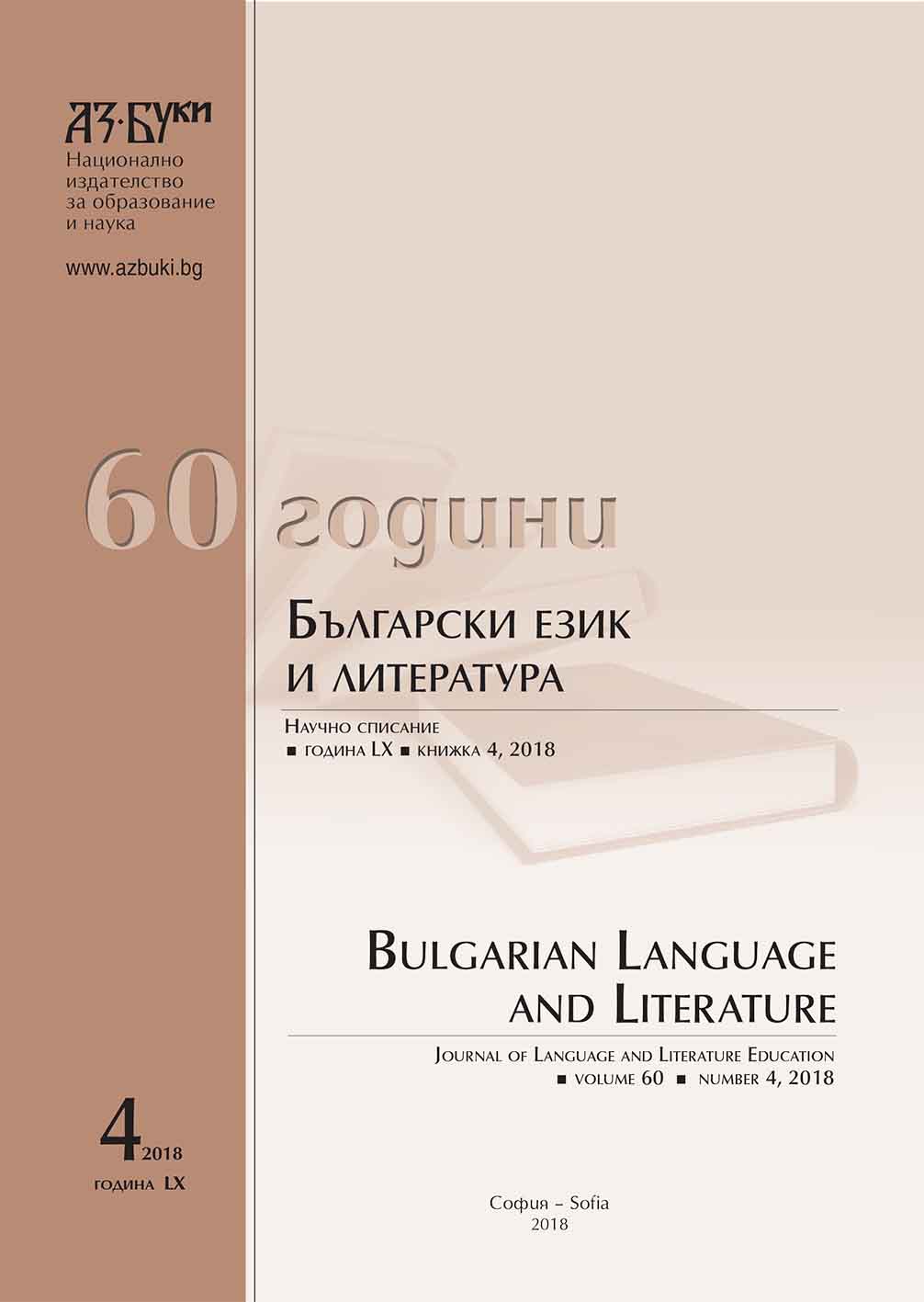
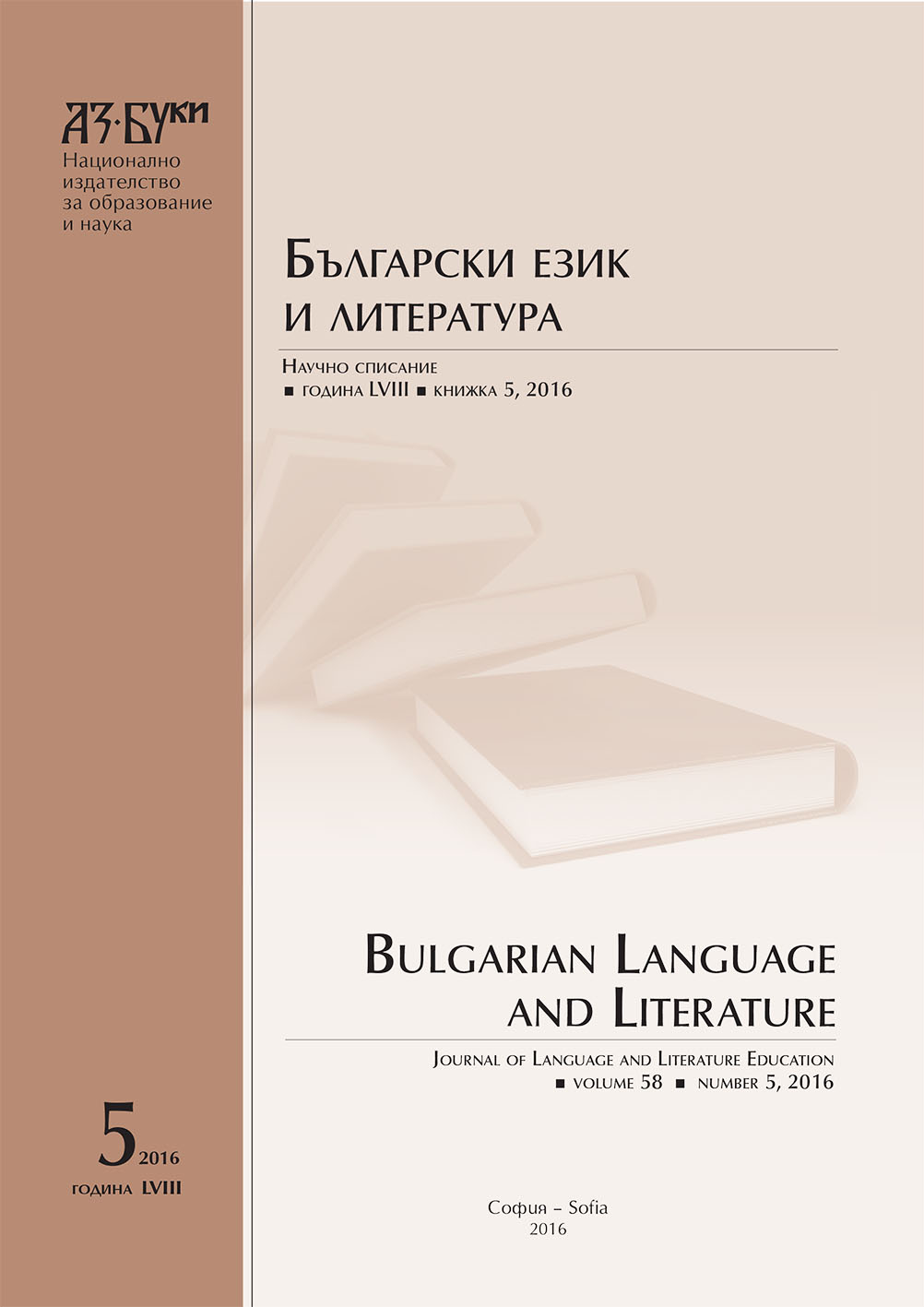
This article suggests a framework for developing key competencies according to the new literature curriculum for 5th grade with the following topic from the educational content: Folkloric/Traditional calendar. For this purpose, we refer to Folkloristic theses and didactic concepts in relation to new trends in education. The project includes: plan of a specific lesson and a system of exemplary learning situations for its implementation (texts, internet resources and interactive techniques).
More...
The paper analyses Yovkov’s “Last joy” through the interpretation of the feast and its functions. The reach of people with eternal spiritual values with beauty and love is only temporary and incomplete; the feast does not reach the goal to unify material and spiritual, individual and society. The crisis in celebration is caused by the crisis of community. It cannot raise its own leaders, as well as it cannot separate the sacred from the profane. The paper develops the idea that in Yovkov’s prose not only the individual should strive towards beauty and good, but the society also should change its attitudes to achieve harmony with man and the world.
More...

Интервю с проф. д-р Людмил Димитров, лектор по български език, литература и култура в Люблянския университет – Словения
More...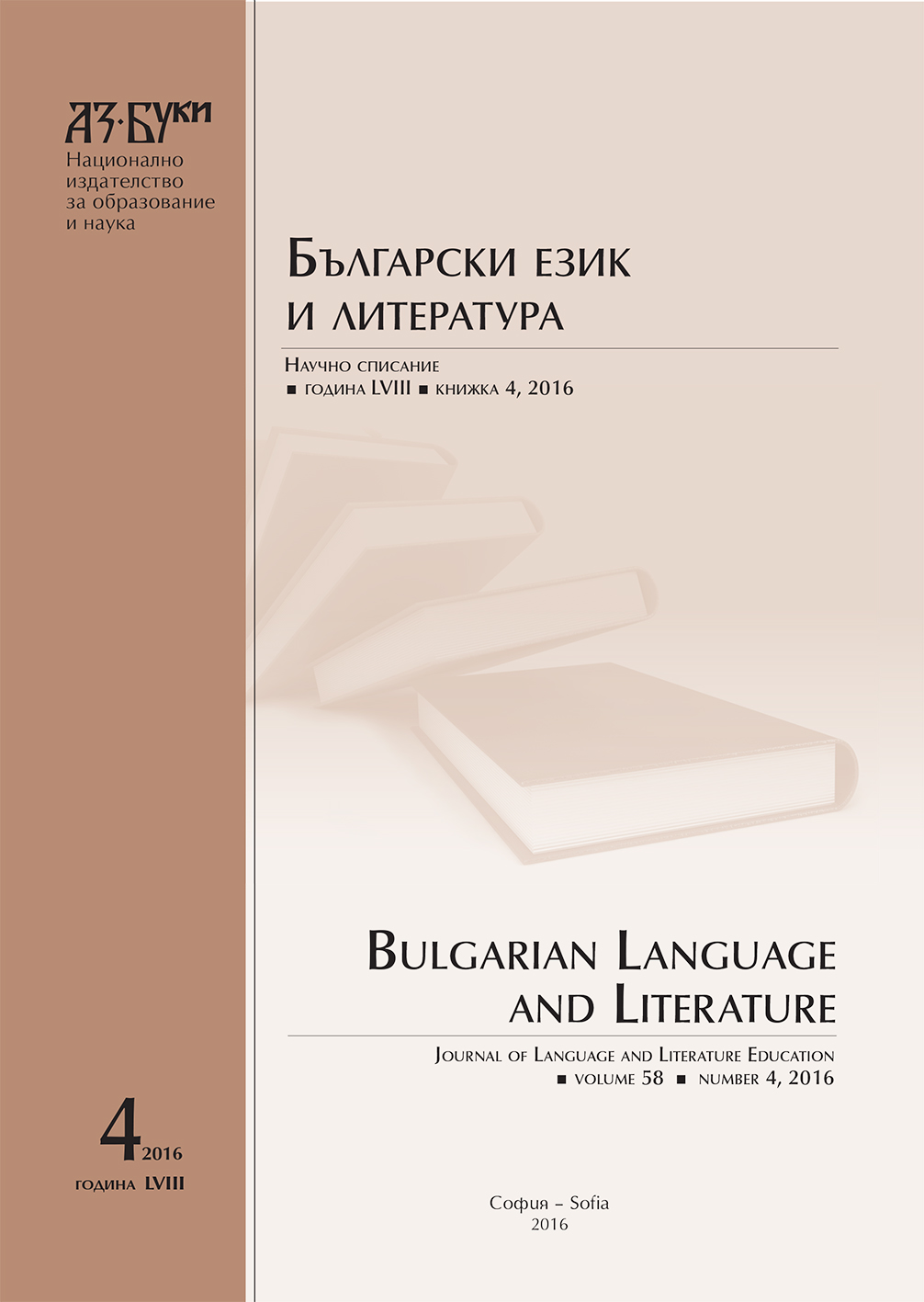
The article aims to analyze one of the basic elements of reading competence, namely reading with comprehension of students from the 11th grade based on an excerpt from the novel “Bel Ami” by Guy de Maupassant. We outline the theoretical concepts which determine the idea of communicative competence, functional literacy, reading literacy, active reader. We present a practical analysis of the first three tasks from a test focused on verifying the basic knowledge of literature. Following our observations we reach a conclusion on the specific capability of the literary text to be converted into a training “lab” for building competencies in Bulgarian language and literature education.
More...
The preservation of Bulgarian identity is an urgent inevitability caused by the realities of today, therefore the development of the proposal of the Literature syllabus for the Bulgarian schools abroad (Year 9 – 12) is a successful way of dealing with this issue. The contemporary education of Literature conformable to the new proposals of the Bulgarian Ministry of Education regarding some changes in the Literature syllabus (Year 9 – 12) guaranties for full value of education on the subject and coordinates the global connections of the Bulgarian middle school education in our country and abroad. The aim of this article is to present a proposal for adaptation of the syllabus for the Bulgarian secondary schools abroad as well as a relevant system and criteria regarding today’s teaching and learning methods and results in the fields of various competencies, achieved by the pupils after finishing their final educational levels at the end of every year during the secondary part of their education.
More...
Радослав Радев, „Технология на методите в обучението по литература“, Издателство СЛАВЕНА, Варна, 2015
More...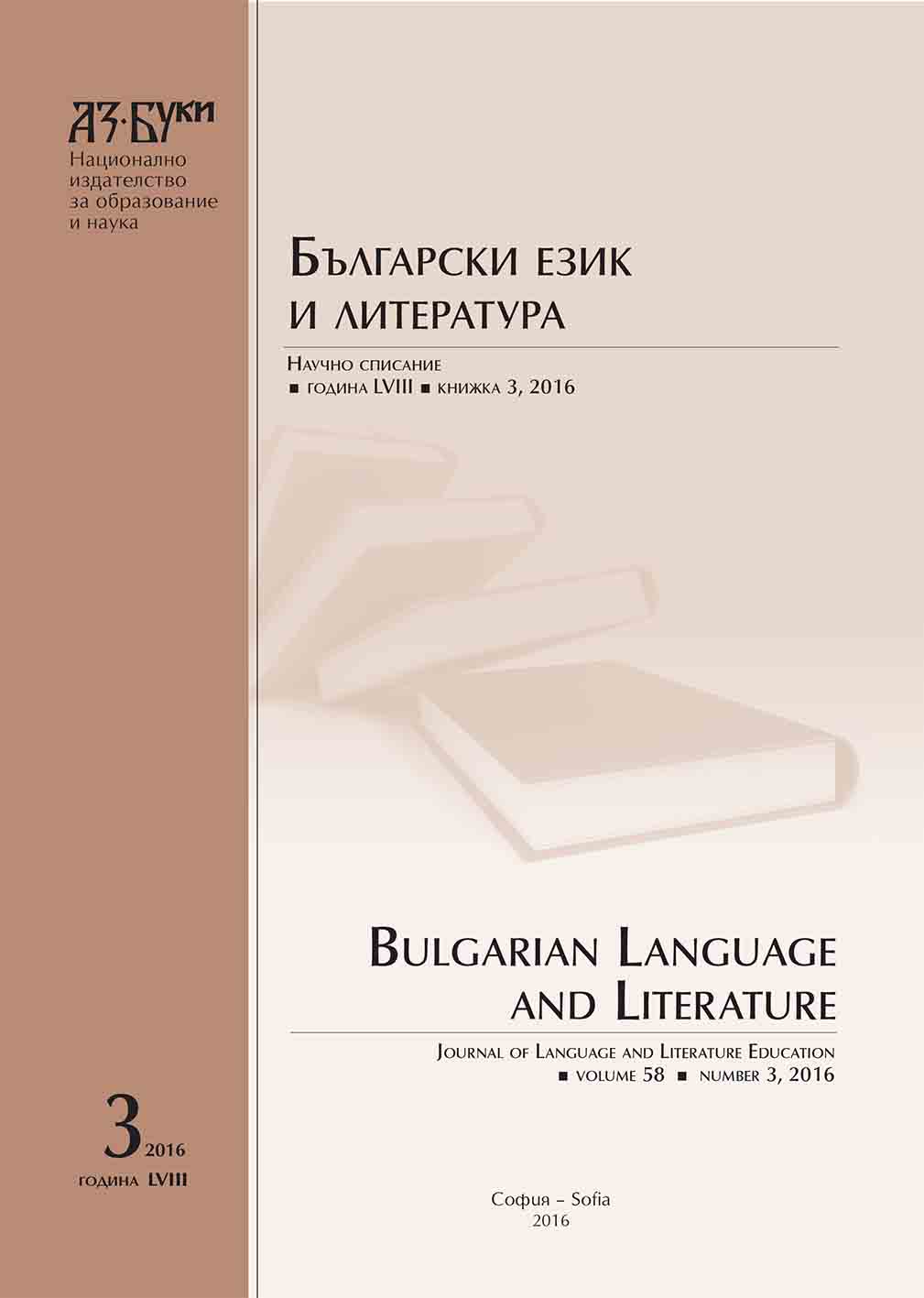
The text offers a typological model of questions and tasks with a receptive nature as well as the options for their construction. The model is based on the dependencies between information, that is text and the reader on one hand, and their understanding of the information on the other. The analysis of these dependencies gives the opportunity to construct a theoretical model that represents the complex and multi-layered connections between the information within the text and its representation (or lack thereof) in the language and the cognitive processes that accompany the interpretation of text during reading.
More...
This article examines the functionality of the dialects and the folklore forms in the Radichkov’s dramatic works. The accented еthnically marked speech of the characters in the plays is realized not as uniting substance, but as such of the disuniting, as language of the failed communication, the nonsense and the illogicality.
More...
The study examines some most typical features of Bulgarian colloquial speech and its syntax: the informality, the extreme subjectivity, the expressiveness, the lack of preparation, the strong depending on situation, the absence of etiquette stiffness, the dominance of household themes, the increased activity of paralinguistic factors (facial expressions, gestures), the specific syntactic terms, utterances and constructions etc.
More...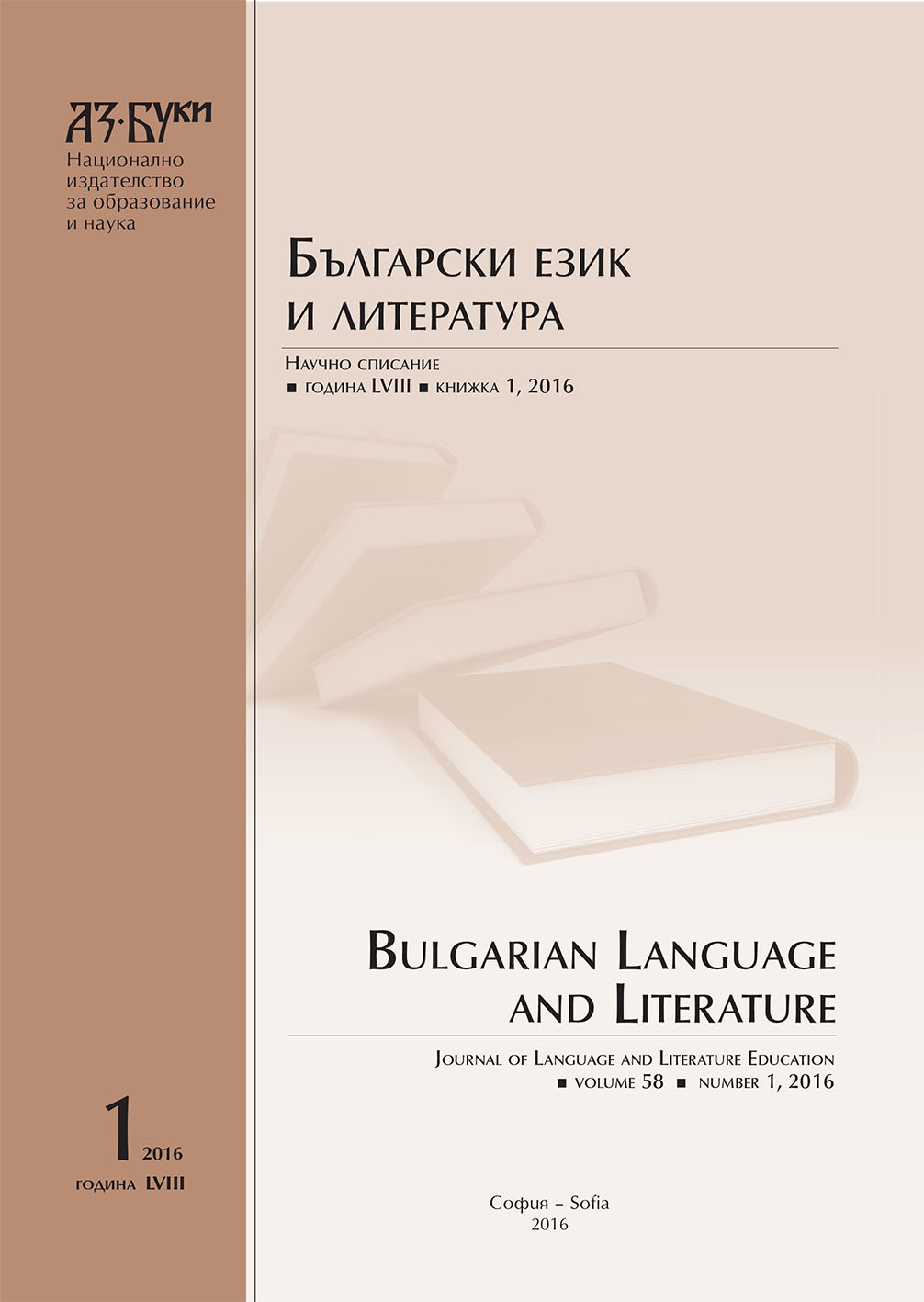
The paper presents models of teaching situations for learning fairy tales applied in primary school. The structure of the proposed models derives from the contemporary teaching circumstances which require the application of methods and approaches towards the learning of fairy tales that combine the pupils’ interest towards the genre, the theoretical key points of the studies, the methodical characteristics of their application as well as the abilities of the interactive methods.
More...
This article provides information on a pedagogical experiment in which the computer presentation stays as a visual support for a diverse teaching with innovative approach. The key milestones include: subject, object, aim, objectives, hypothesis, scope, criteria, indicators, the study methodology and achieved results.
More...

Author of this article presents Dora Gabe as a translator (from Polish to Bulgarian) of the „Hymns“ collection written by Jan Kasprowicz. She investigated the process of popularization of the Kasprowicz works and Polish literature in Bulgaria by Gabe and her husband Boyan Penev. There is also showed an attitude of Gabe towards Dobrudzha, perceived from the Bulgarian perspective and the synonym of the local homeland.
More...
(„Приноси към теорията и практиката на езиковото образование“. Сборник в памет на проф. Кирил Димчев, Булвест 2000, София, 2015, 559 с.)
More...